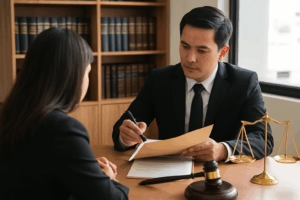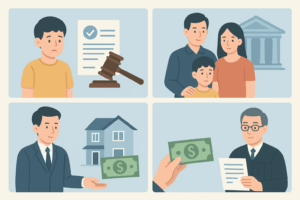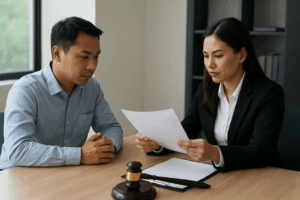Thailand’s allure as a destination for expatriates and investors is undeniable, but for many foreigners, the intricacies of property ownership can be a daunting challenge. The Land of Smiles comes with its own set of rules and regulations, particularly when it comes to owning land. In this comprehensive guide, we will delve into the concerns that often preoccupy the minds of foreigners looking to invest in Thai real estate, with valuable insights from Siam Center Law Group specializing in property matters.
Understanding Property Ownership Restrictions
One of the primary concerns for foreigners is the restriction on land ownership. Unlike some countries that allow unrestricted property ownership, Thailand has regulations in place to protect its natural resources and land. The Land Code Act stipulates that non-Thai nationals are generally prohibited from owning land. However, Soam Center Law Group can guide foreigners through legal avenues and structures, helping them secure their stake in the vibrant Thai property market.
Leasehold vs. Freehold: Deciphering the Options
In navigating Thai property laws, understanding the distinction between leasehold and freehold is paramount. While freehold grants outright ownership, leasehold allows the use of the property for a specified period. Each option comes with its own advantages and considerations, influencing the decision-making process for foreigners seeking a foothold in Thailand’s real estate landscape, and Siam Center Law Group can provide crucial insights into these options.
The Document Trail : Job Offers, Education, and Health
The meticulous nature of the application process underscores the Thai government’s commitment to ensuring that foreign workers meet certain standards and qualifications. The list of required documents includes a job offer letter, educational certificates, and a health certificate. Additionally, applicants may need to undergo a criminal background check, emphasizing the stringent scrutiny applied to those seeking employment in the country.
Overcoming Legal Hurdles: The Role of Legal Advisors
The language barrier and the intricacies of Thai legal terminology can pose significant challenges for foreigners. Seeking the expertise of legal advisors from Siam Center Law Group who specialize in real estate transactions can be instrumental. These professionals can guide investors through the legal maze, ensuring compliance with Thai laws and regulations. From due diligence to contract reviews, having a legal ally from a reputable law firm can provide peace of mind in the often complex process of property acquisition.
Conclusion:
Stay tuned for the continuation of this guide, where we will explore additional concerns such as taxation, cultural considerations, and the latest updates on property regulations in Thailand, with insights from leading Siam Cemter Law Group in the field.
Contact : Siam Center Law Group by calling +66(0) 2 648 5041, +66(0) 2 648 5042





